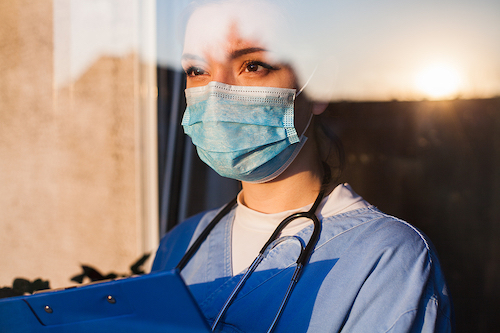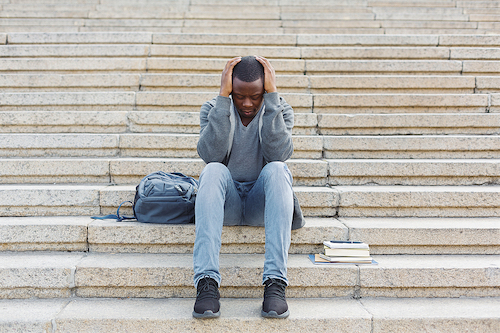March 31, 2025
by Elizabeth Pratt

Female physicians have a higher rate of suicide than females in the general population.
Research published in JAMA Psychiatry found that female physicians had a 53% increased risk of suicide compared to their female counterparts who weren’t physicians.
[More]
December 18, 2024
by Elizabeth Pratt

Feeling lonely has a greater impact on sleep for college students than too much screen time.
Research from Oregon State University found that students with high levels of loneliness were more likely to have difficulties sleeping compared with less lonely students, regardless of their level of screen time.
[More]
September 26, 2023
by Patricia Tomasi

A new study published in the Journal of Emotion looked at the influence of sleep on subjective well-being through an experience sampling study. “In the study we wanted to find out, how various indicators of sleep influence well-being on the next day. We were hoping to find multiple associations between sleep and well-being,” study author Dr. Anita Lenneis, from the University of Warwick’s Department of Psychology, told us. “We pre-registered our ideas of how the results would look like in advance.”
[More]
April 11, 2023
by Patricia Tomasi

A new study published in the Journal of Clinical Sleep Medicine compared the burden of sleep disorders among a cohort of US transgender and cisgender youth. “We were looking for any differences in sleep disorders between cisgender and transgender youth and between transgender people using and those not using gender-affirming therapy,” study author Dr. Ronald Gavidia, M.S., M.S. told us.
[More]
September 21, 2021
by Patricia Tomasi

A new study published in the Journal of Translational Psychiatry looked at a combined clinical and genetic approach to the assessment of suicide and death in bipolar affective disorder. “When we think about the risk for suicide, we often think about what is happening in a person’s life at the time: the loss of a job, a major change in a relationship,” study author Eric Monson told us. “Not many people are aware that genetics play an important role in risk. In fact, the heritability for suicidality is estimated to be 30-50%, meaning that a significant proportion of risk arises from genetic sources.”
[More]
December 15, 2020
by Patricia Tomasi

Did you know that adults need an average of seven to nine hours of sleep per day and that adolescents need eight to ten hours? According to statistics from the Institute of Medicine, American adults and teens aren’t getting enough sleep. How does lack of sleep or sleep deprivation affect our brain’s reward system? An average of 50-70 million American adults have a sleep disorder. The most common sleep disorder is insomnia. Approximately 30 per cent of American adults say they have experienced short term insomnia while 10 per cent say they experience chronic insomnia. A new study published in eNeuro looked at sleep-deprivation and rewards using mice and cocaine.
[More]
August 21, 2018
by Elizabeth Pratt

Researchers have found a poor sleep can contribute to feelings of loneliness and make a person less socially desirable.
[More]
August 1, 2018
by Tina Arnoldi

Insomnia is a common sleep disorder affecting about a third of the worldwide population. The need for insomnia treatment is expected to increase in years ahead among younger member of the population who have higher stress levels along with a growth in the number of people who have chronic illnesses requiring sedation.
[More]
June 28, 2018
by Tina Arnoldi

Researchers have found that church attendance may have beneficial effects for people who suffer from short term or chronic insomnia. And no, this does not mean sermons are so boring that they cause people to fall asleep. Psychological science suggests a real correlation between religious activities and better sleep.
[More]
March 24, 2018
by Tracey Block

Having a strong work ethic has long been considered a positive characteristic. Yet in recent years, much more is being published about the negative impacts to one’s health--specifically to one's mental health--as a result of too much work.
[More]